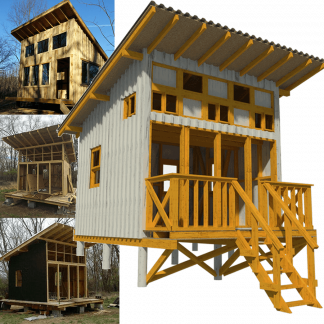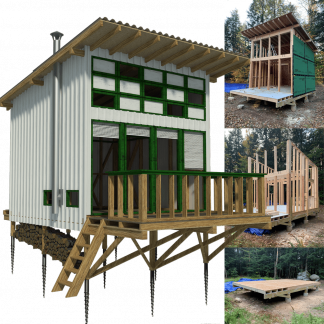
A foundation is fundamental to building a structure that will last decades. The key to building a six-story building is to dig deep and have strong reinforcement. A foundation and the way it supports a building can be likened to how the basics in business support the operations.
Foundations are also tied to growth. The higher your building, the stronger the foundation. A foundation also represents religious principles. A foundation speaks of something within that can’t be easily shaken or altered. If you want to learn more about how a foundation is essential, read more.
- Choose a Good Site
When building a structure, preliminary work, such as soil analysis, surveying, and architectural design, must happen. In business, this is the early decision you make regarding having a mission and solid strategy. This will assist in creating a structural framework that provides stability. The foundation of a built structure also determines stability.
The foundation also requires a strong marketing strategy and business plan to make more informed decisions. In business, your site will be the company’s location.
- Check and Invest in What’s Underground
Investing in a building foundation is essential as it is what determines the strength of your building. A strong foundation also holds up the walls and creates the basics of what the building depends on.
A foundation is important in a building, similar to business principles. A foundation is rarely seen, but is the main reason a structure exists, so ensuring it’s built with the best, even though underground, is essential. This concept is similar to principles in a company. Most people might not know them, but they determine the success of your business.
- Stay Prepared for Changes
Your building’s foundation should be able to withstand any changes in weather. Similarly, with a business, rigidity mustn’t be practised. A company should be willing to change to new procedures and techniques. The inability to change can lead to destruction. Similar to a building the wind can easily blow away.
- Decentralise to Maintain Stability
The foundation of a building should be able to support the weight of its structure from any angle. This means a load shouldn’t be concentrated in a single area. Similarly to a business, some workers shouldn’t appear to have more pressure than others. The workload should be evenly distributed to ensure worker satisfaction. When a single employee has to do more than others, it creates dissatisfaction. Exerting pressure on a weak foundation leads to destruction in both regards.
- Trust Data and Measurements
Some things are added to a foundation to make them stronger. You will rarely see them unless you were there when the foundation was laid. Precise measurements are extremely important when adding these components as they determine the load and pressure the foundation can withstand.
Similarly, data-driven decision-making is important. In a business, it’s impossible to know what will happen in the future, but using previous data could assist in measuring possible outcomes.
- Keep it Local
When creating a structure, choose something suitable for the location. There’s a need to eliminate the one-size-fits-all solution. Likewise, a business can create personalised products for their customers, considering there’s no universal solution to everyone’s problem.
Common Building Foundation Types
There are several types of foundations. Here are a few common types:
Poured Concrete Slab
This is an 8-inch flat section of concrete border using wood forms. The forms hold the concrete in place until it dries. These are commonly affordable and easy to install. They don’t require a lot of material and support some weight. They are also great for areas where there is ground freezing.
Wood Foundation
Wood foundations are very easy to build and use very simple construction techniques. This foundation is the type that can be built on immediately after installation. No need to wait for it to dry like a concrete foundation. This type of foundation is weak and can’t support megastructures.
Crawl Space Foundation
A crawl space is a foundation with short walls at its perimeter and footings underneath the structure. What this means is that there’s a hole underneath your building. This ventilation is created to prevent moisture build-up. Most crawl spaces are unfinished and unconditioned.
Stone Foundation
These were very common in ancient times before concrete was widespread. These are traditional, and most people enjoy the classical look. In the past, this option was the cheapest and most durable. Currently, very few places approve of a building with a stone foundation.
Full Basement
Full basement foundations are below the ground with a deeply dug footing. They also have walls that permit a standing wall and a concrete slab. Full basements are all about flexibility. They can be found in any building and can be customised into anything. They can be a playroom for a family or left unfinished as a storage room or workshop. The footings are dug deep into the ground, making them strong and stable.








